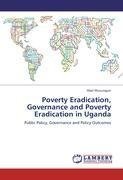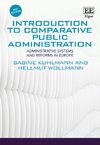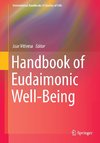
-
 Anglický jazyk
Anglický jazyk
Poverty Eradication, Governance and Poverty Eradication in Uganda
Autor: Abel Mucunguzi
This book has three themes: poverty eradication policies, governance, and poverty eradication outcomes in Uganda. This work focused on a period stretching from 1986 to 2006 because the year of 1986 represented the beginning of the period of political, economic... Viac o knihe
Na objednávku, dodanie 2-4 týždne
73.17 €
bežná cena: 81.30 €
O knihe
This book has three themes: poverty eradication policies, governance, and poverty eradication outcomes in Uganda. This work focused on a period stretching from 1986 to 2006 because the year of 1986 represented the beginning of the period of political, economic and social stability in Uganda, which paved the way for poverty eradication policy to gain centre stage. As a consequence, Uganda attracted a lot of academic interest from the mid - 1980s and in most literature, it has been hailed as a success story and as an example to other poor parts of the world. However, Uganda's poverty eradication story from 1986 up to 2006 was not fully told. By 2006, more than 35% of its population remained under absolute poverty according to the Uganda Bureau of Statistics (UBOS). In a nutshell, the study concentrated on analyzing the relationships among three variables: holistic poverty policy-making models, governance and poverty eradication outcomes. The findings revealed that Uganda could have achieved far better poverty eradication outcomes if it had fully embraced holistic policy-making approaches and inculcated firm foundations for good governance in its poverty eradication campaigns.
- Vydavateľstvo: LAP LAMBERT Academic Publishing
- Rok vydania: 2011
- Formát: Paperback
- Rozmer: 220 x 150 mm
- Jazyk: Anglický jazyk
- ISBN: 9783845475721







 Nemecký jazyk
Nemecký jazyk 
 Ruský jazyk
Ruský jazyk 



